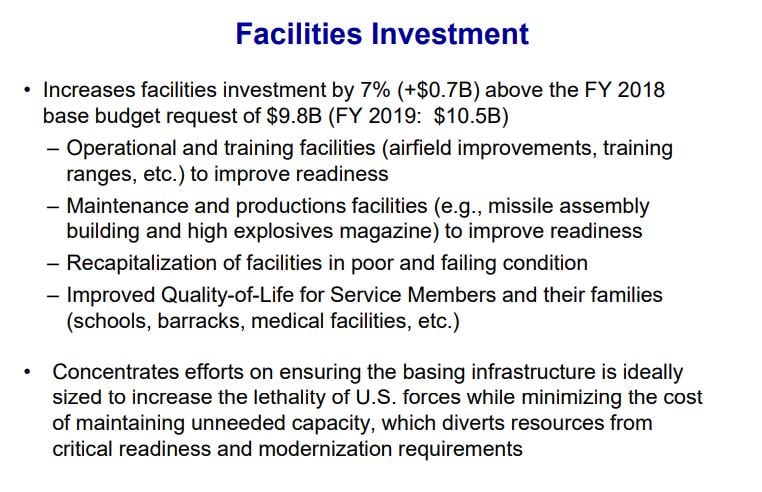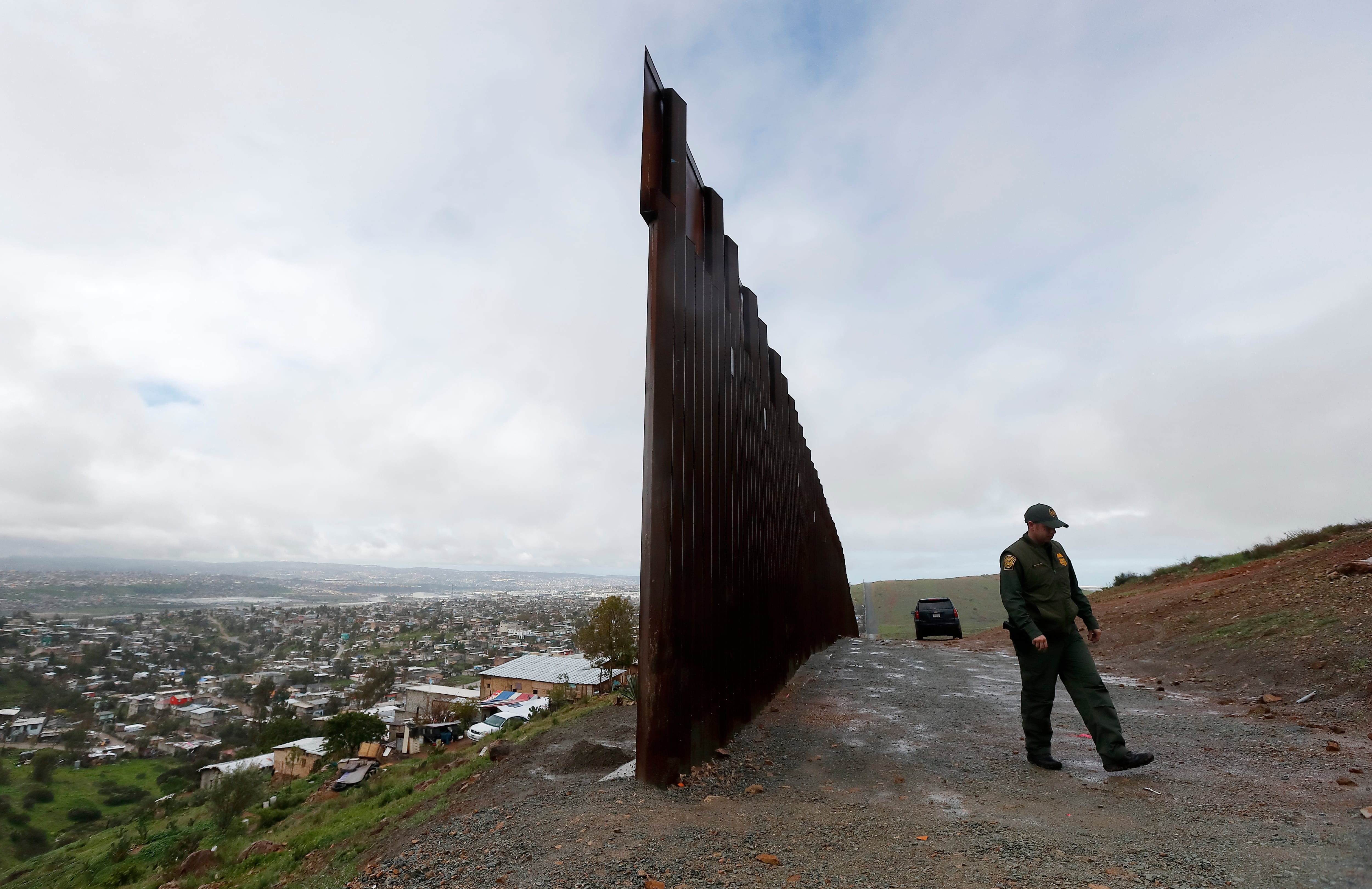Military communities whose local construction projects weren’t scheduled to begin until later this year are among the most likely to be cut to fund the border wall, two U.S. officials who briefed reporters at the Pentagon said Friday.
The officials described, on the condition that they not be named, how they would determine what funds would go to the border wall, from both the military’s $3.6 billion military construction account and a $2.5 billion counter-drug account.
Those officials were set to go to Capitol Hill Friday afternoon to similarly brief congressional members and staff on their progress.
Some members are likely to challenge the Pentagon’s choices. Acknowledging this, the Pentagon is looking at cutting from projects that would have “minimal impact,” one of the officials said.
That includes projects that have not been awarded yet to a contractor; projects that are part of recapitalization program, including “those that are about updating, fixing, replacing existing facilities;” and projects that are scheduled to be awarded later in the fiscal year, the officials said.
RELATED

They did not offer specific examples of which projects would be impacted.
The Pentagon received $10.5 billion in the fiscal year 2019 budget, a 7 percent increase over fiscal year 2018.
Military funds redirected to the wall from recapitalization projects may face the most push back. DoD requests military construction money for recapitalization when a facility is in a “poor or failing condition," according to Pentagon budget documents.

In order to spend the military construction funds, Pentagon Acting Defense Secretary Patrick Shanahan is required to determine that the use of the funds “are necessary to support such use of the armed forces.” However that determination is up to the secretary’s discretion, the officials said.
By March 1, there will be approximately 4,000 active duty and 2,100 National Guard forces along the border, DoD said.
“There are not formal criteria for that assessment,” one of the two officials said. “It becomes the considered judgment based on the inputs that the secretary has, and he has been very deliberate about ensuring that he has the information [he requires.]"
RELATED

The Pentagon has repeatedly said that any family housing projects that are a part of that total won’t be spent.
The other source of funding that could be tapped — a $2.5 billion counter drug account — is actually almost completely spent, with less than $85 million remaining, the officials said. Other monies could be reprogrammed into that account, however, they added.
In the past, DoD has asked Congress for permission to reprogram funds, but they aren’t required to do so, the official said.
Tara Copp is a Pentagon correspondent for the Associated Press. She was previously Pentagon bureau chief for Sightline Media Group.




